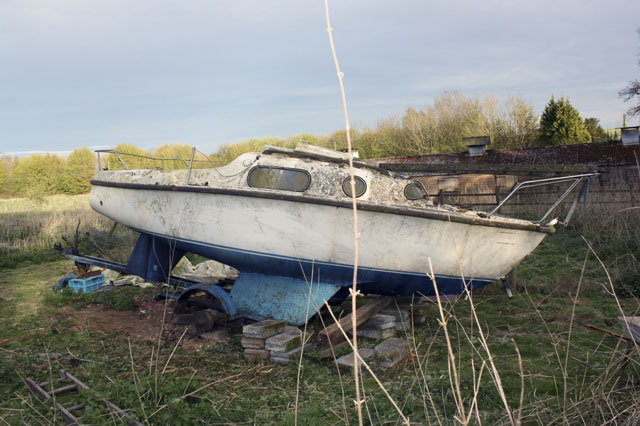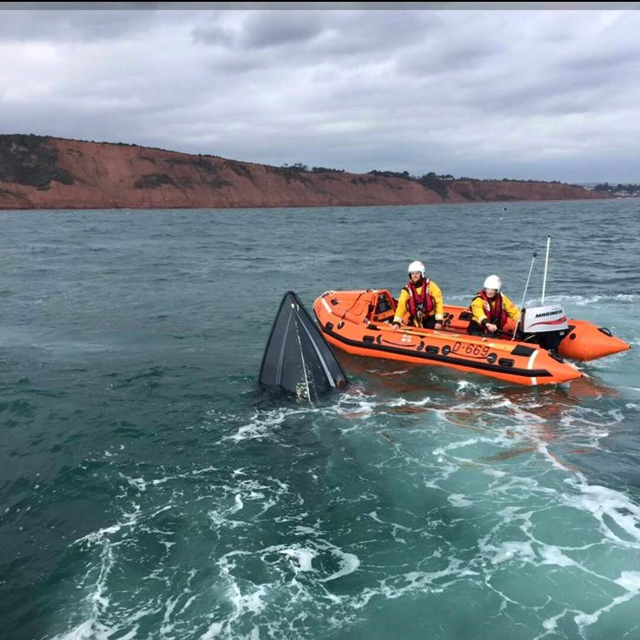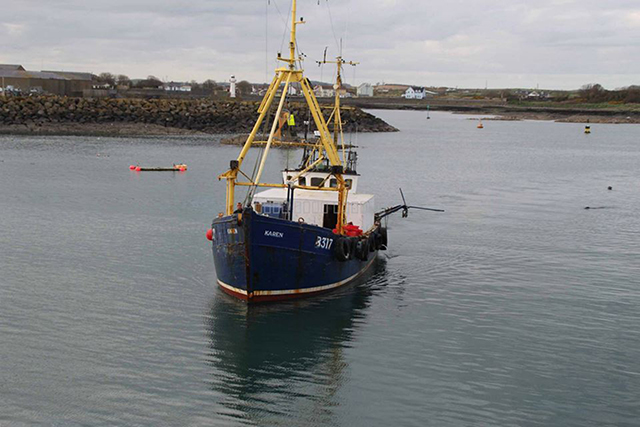The UK Coastguard has highlighted the benefits of boat owners having a radio with Digital Selective Calling (DSC) following a spate of rescues.
DSC is a a semi-automated method of establishing a radio call, which is designated as a part of the Global Maritime Distress and Safety System (GMDSS).
It is planned that DSC will eventually replace aural watches on distress frequencies and will be used to announce routine and urgent maritime safety information broadcasts.
It can be used for ‘all ships calls’ such as Mayday, Urgency and Safety, as well as calls to specific stations such as other ships or the coastguard.
Last Saturday evening, 22 October, the Coastguard was able to locate and send rescue resources to a fishing vessel, which was on fire with seven people on board, within just a few minutes, thanks to a DSC alert.
The vessel, which was about 13 miles south-east of the Isle of Man, broadcast a DSC distress alert, which allowed the UK Coastguard to locate the vessel within moments and send the Douglas RNLI Lifeboat and a Coastguard helicopter to assist.
Other merchant vessels also in the area responded and offered to help. A mayday message was also broadcast following the DSC distress alert.
The crew of the fishing vessel were able to get the fire under control and the vessel was escorted back into Douglas Harbour by the Douglas Lifeboat.
Dawn Petrie, for the UK Coastguard, said: ‘Thanks to the swift and correct use of the DSC radio on board the vessel we were able to get rescue resources to the crew very quickly whilst they worked to tackle the fire.
‘All seven crew are safe and well. This is the second incident in a week where correct use of the DSC radio has helped us to locate and send resources to people in distress.
The previous Saturday a single-handed sailor broadcast a DSC distress alert as he had become exhausted and needed assistance whilst sailing off the west coast of Scotland.
Dawn added: ‘This time we requested the Campbeltown RNLI Lifeboat to assist along with the Campbeltown and Southend Coastguard Rescue Teams. The sailor was located very quickly and brought back to Campbeltown by lifeboat.
‘Having a DSC radio on board and knowing how to use it could save your life. If you use it correctly we will be able to locate you within moments and get the right rescue resources on their way within minutes.’
What to pack in a grab bag
No one wants to abandon ship, but a grab bag of essentials can make a short stay in a liferaft…
VHF DSC radio – advice for PBO readers from the MCA
Good communications save lives at sea
Ofcom authorises hand held DSC radios
Handhelds to have own distinct MMSI number
Leisure 17: Rescued from the nettles
John MacKenzie finds himself renovating a war veteran’s Leisure 17 that had resided among chest-high nettles in a field in…
Lifejacket warning after powerboat sinks
Four people were rescued from the water after their 18ft speedboat sank off the Exmouth coast.
Report reveals what happened when submarine snagged trawler
Chief Inspector of Marine Accidents criticises Royal Navy's 'reluctance' to engage in an investigation into the collision between a dived…
LED and laser flares tested
LED and laser flares claim to replace pyrotechnic flares on board: but how do they compare with a traditional flare…
Yacht rescue prompts reminder to carry VHF radio at sea
Don't rely on a mobile phone, says RNLI coxswain Mark Kenyon: Without a radio bearing 'a small vessel in rough…
Raymarine Quantum pulse compression radar: tested
Exclusive: We take to the Solent to compare the performance of the new Raymarine Quantum pulse-compression radar with a same-size…
Testing times on the Atlantic Rally for Cruisers (ARC)
Laura Hodgetts talks to the skippers of 20 boats on the Atlantic Rally for Cruisers (ARC), ‘the biggest downwind gear…
Lessons learned from MAIB reports
Lessons learned from a tragic speedboat ride, a "case of bad gas" and an incident involving a capsized yacht that…
New VHF rules in force on European Waterways
ATIS number mandatory for UK boats on most European inland waterways
















